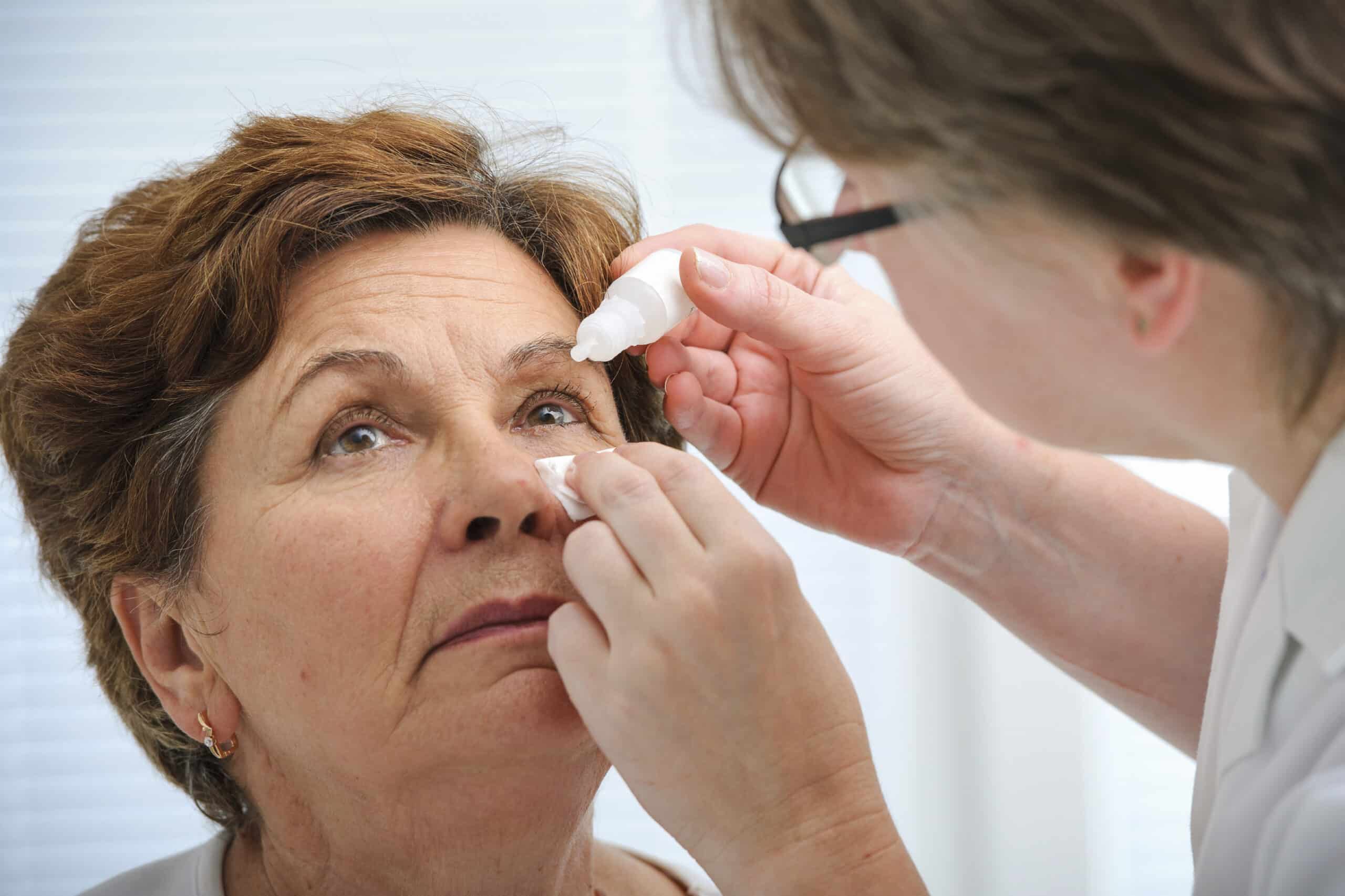
Most of us take our good vision for granted, but millions of Americans suffer from serious vision problems. The leading causes of poor vision in the U.S. are eye diseases, including macular degeneration, diabetic retinopathy, glaucoma and cataracts. Unfortunately, the chance of having an eye disease increases as we age. By age 65, one in three Americans will have a vision-threatening eye disease. The beginnings of serious eye disease often start in mid-life but don’t have any symptoms until later when it’s more difficult to treat. Identifying these conditions and starting treatment earlier gives a much better chance of preserving good vision. That’s why it’s so important to have an eye exam every year and keep on top of any changes that happen to your vision.
Many people see an optometrist for regular eye exams and common eye problems; they do a great job of providing primary care for the eyes. However, if you require more advanced care, you will be referred to an ophthalmologist – a medical doctor who specializes in treating serious disorders and diseases of the eye. Ophthalmologists are skilled in a variety of treatment options, including surgery. Some of the diseases and conditions you might see an ophthalmologist for include:
Age-related Macular Degeneration
Macular degeneration, often called age-related macular degeneration (AMD) is associated with aging. It results in damage to the central vision of the eye. AMD affects the macula, the central part of the retina that allows the eye to see fine details. Those suffering from AMD often cannot perform simple tasks such as reading or driving due to the deterioration of their vision. There are two types of age-related macular degeneration you should be aware of – wet and dry.
Wet AMD occurs when abnormal blood vessels behind the retina start to grow under the macula, causing blood and fluid leakage. An early symptom of wet AMD is when straight lines start appearing wavy. Always see your eye doctor right away if this occurs.
Dry AMD is when the macula (the central part of the retina) thins over time. This occurs as part of the aging process in some people and gradually blurs their central vision. Dry AMD is more common than wet AMD and progresses more slowly over time. A common early sign of Dry AMD are tiny yellow or white deposits under the retina which your eye doctor can check for.
Cataracts
This common eye problem is caused by a clouding in the lens of the eye. Although cataracts can occur at any age, they are more common as you get older. Fortunately, cataract surgery is now a fairly simple procedure that takes just minutes and can restore proper sight to the eye. The surgery replaces the clouded lens in the eye with a clearer one to improve vision.
Glaucoma
Glaucoma occurs when the normal fluid pressure in the eye slowly rises, causing damage to the eye’s optic nerve. (Recent research also shows that it can also occur under normal eye pressure.) There are several types of glaucoma including open-angle glaucoma and closed angle glaucoma, also called acute glaucoma. A majority of patients suffer from open-angle glaucoma. Early treatment for this disease can usually protect your eyes against vision loss, which is why it is so important to be tested for glaucoma each year.
Diabetic Retinopathy
This eye disease occurs as a common complication of diabetes. The disease causes progressive damage to the blood vessels of the retina at the back of the eye. The disease progresses in stages and usually affects both eyes. Early detection of diabetic retinopathy and proper treatment can reduce the risk of vision loss.
Dry Eyes
This condition occurs when there are insufficient tears to lubricate the eyes. Those suffering from dry eye either do not produce enough tears or have a poor quality of tears. Dry eyes often affect older adults, and can cause vision issues. Fortunately, there are a number of effective treatments for dry eye, including prescription medication.
At Reliant Medical Group, our board-certified ophthalmologists diagnose and treat hundreds of different eye conditions. They offer a full range of eye care, from sophisticated testing to different types of surgery and specialized contact lenses to correct vision problems. To learn more, call (508) 856-9599 or visit reliantmedicalgroup.org/ophthalmology.
Stay in touch with the conversation, subscribe to the RSS feed for comments on this post.


